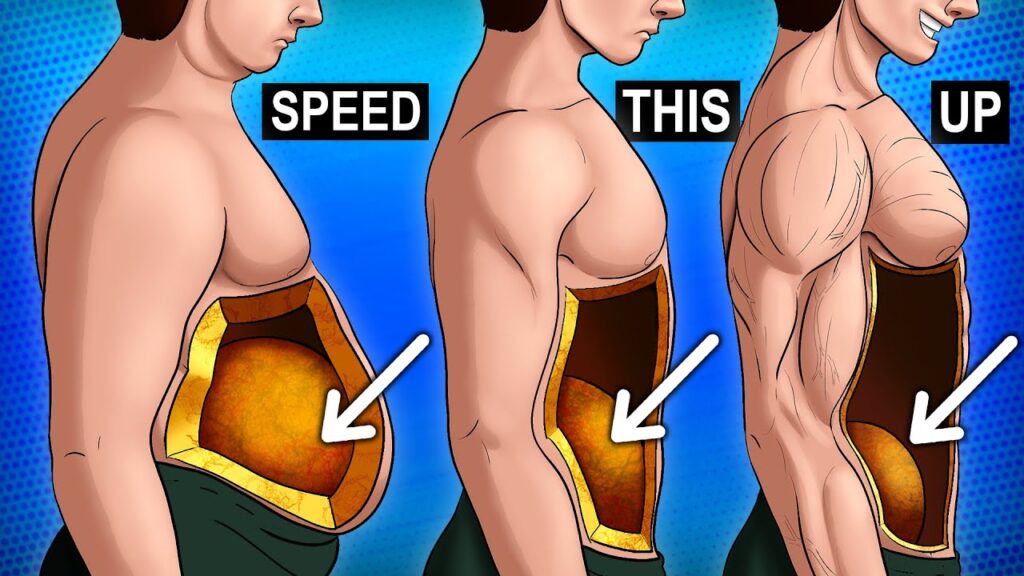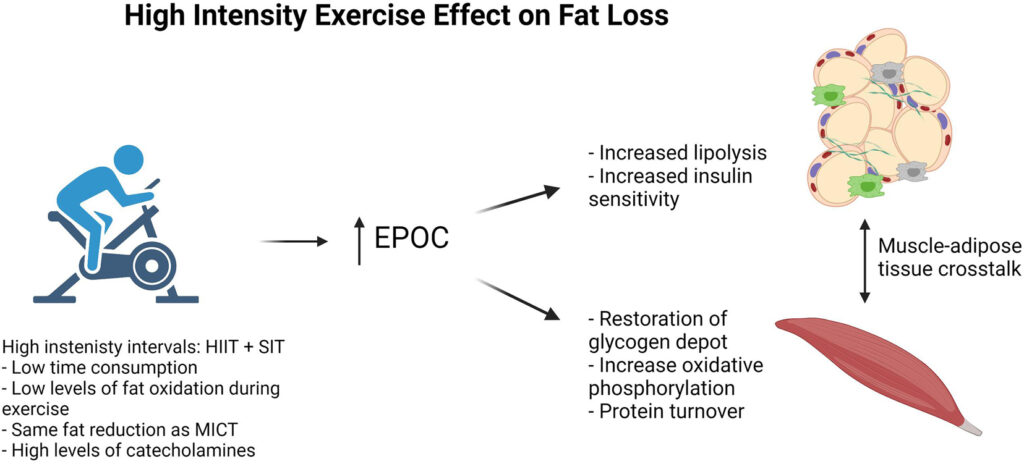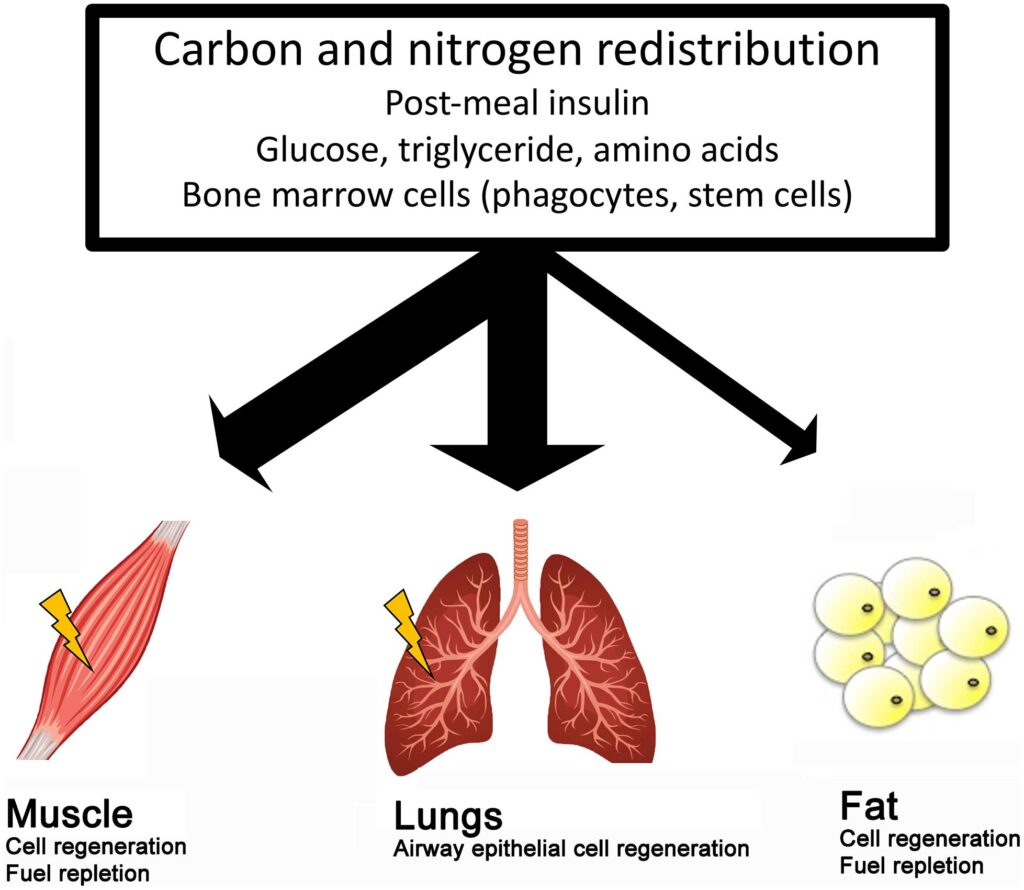Have you ever wondered how you can speed up your fat burning process effectively? Many people, especially as they age, find it increasingly challenging to shed those extra pounds. It can be quite frustrating, but don’t worry; there are proven methods and practices that can help accelerate your fat-burning journey.
Understanding Fat Burning
Table of Contents
Fat burning, scientifically known as lipolysis, is the process where your body breaks down fat to release fatty acids, which are then used as energy. This involves a combination of physiological processes including hormone regulation, metabolism, and energy expenditure.
How Your Metabolism Works
Your metabolism is the sum of all chemical reactions happening in your body. It plays a crucial role in converting food into energy and regulating how efficiently you burn fat. The slower your metabolism, the more challenging it may be to lose weight. Factors influencing metabolism include age, gender, muscle mass, physical activity, and genetic makeup.
Role of Hormones in Fat Burning
Hormones like insulin, cortisol, and thyroid hormones significantly influence your body’s fat-burning capacity. Insulin, for example, helps regulate blood sugar but also promotes fat storage when levels are too high. Conversely, growth hormone and adrenaline can accelerate fat burning, especially during physical activity.
Effective Cardiovascular Exercises
Cardiovascular exercise is one of the most effective methods for burning fat. These exercises increase your heart rate and substantially enhance caloric expenditure.
High-Intensity Interval Training (HIIT)
HIIT involves short bursts of intense exercise followed by rest or low-intensity periods. Research suggests that HIIT can boost your metabolism for hours post-exercise, leading to enhanced fat burn.
Example HIIT Routine:
| Exercise | Time (seconds) | Rest (seconds) |
|---|---|---|
| Sprint | 30 | 30 |
| Jumping Jacks | 30 | 30 |
| Burpees | 30 | 30 |
| High Knees | 30 | 30 |
| Repeat | 3 cycles |
Steady-State Cardio
While not as intense as HIIT, steady-state cardio such as walking, jogging, or cycling for a prolonged period can also be beneficial. It encourages consistent fat burning and is easier on the joints, making it ideal for older adults.

Strength Training to Build Muscle
Muscle tissue burns more calories at rest than fat tissue. Hence, increasing your muscle mass can significantly boost your basal metabolic rate (BMR), leading to higher calorie and fat burn throughout the day.
Compound Exercises
Compound exercises like squats, deadlifts, and bench presses engage multiple muscle groups simultaneously, making them highly efficient for building muscle and burning fat.
Sample Strength Training Routine:
| Exercise | Reps | Sets |
|---|---|---|
| Squats | 10-12 | 3 |
| Deadlifts | 8-10 | 3 |
| Bench Press | 10-12 | 3 |
| Bent Over Rows | 10-12 | 3 |
| Shoulder Press | 10-12 | 3 |
Functional Training
Functional training mimics everyday activities and strengthens your core muscles. Activities like kettlebell swings, medicine ball throws, and resistance band exercises can improve your strength and endurance, aiding fat loss.
Nutrition and Diet
What you eat plays a significant role in how efficiently your body burns fat.
High-Protein Diet
Protein is essential for muscle repair and growth. High-protein diets can increase your metabolism, reduce appetite, and significantly enhance fat burning.
Low-Carb or Ketogenic Diet
Low-carb diets and ketogenic diets can force your body to use fat for energy instead of carbs. When following these diets, your body enters a state called ketosis, which significantly enhances fat burn, especially for older adults.
Intermittent Fasting
Intermittent fasting involves cycling between periods of eating and fasting. This can aid weight loss by decreasing your calorie intake and improving your body’s efficiency in burning fat.
Popular Intermittent Fasting Methods:
| Method | Eating Window | Fasting Period |
|---|---|---|
| 16/8 | 8 hours | 16 hours |
| 5:2 Diet | 2 days (500-600 calories) | 5 days (normal eating) |
| Eat-Stop-Eat | 24 hours once or twice a week | 24 hours fasting |

Importance of Hydration
Hydration is crucial for all bodily functions, including fat metabolism. Drinking water can enhance fat oxidation, appetite control, and overall metabolic rate.
Drinking Water Before Meals
Consuming water before meals can lead to reduced calorie intake as it helps you feel fuller faster. Studies have shown that drinking 500 ml of water before meals can significantly increase weight loss.
Sleep and Stress Management
Lack of sleep and high-stress levels can hinder your fat-burning efforts through various mechanisms, such as hormonal imbalances and increased cravings for unhealthy foods.
Quality Sleep
Aim for 7-9 hours of quality sleep each night. Sleep deprivation can increase hunger hormones like ghrelin and decrease leptin (the satiety hormone), leading to overeating.
Stress Reduction Techniques
Practicing stress management techniques such as meditation, deep breathing exercises, yoga, or regular physical activity can reduce the production of cortisol, a hormone that promotes fat storage, especially in the abdominal area.

Natural Fat Burners
Certain foods and supplements can naturally boost your metabolism and promote fat loss.
Green Tea Extract
Green tea is rich in antioxidants called catechins, notably EGCG (Epigallocatechin gallate), which can enhance fat burning, particularly during exercise.
Caffeine
Caffeine, predominantly found in coffee and many weight loss supplements, can increase metabolic rate and promote lipolysis.
Apple Cider Vinegar
Apple cider vinegar might help accelerate fat burning due to its acetic acid content, which can reduce insulin levels, improve metabolism, and suppress appetite.
Usage Recommendation:
| Supplement | Recommended Dose |
|---|---|
| Green Tea Extract | 250-500 mg daily |
| Caffeine | 100-200 mg before workouts |
| Apple Cider Vinegar | 1-2 tablespoons diluted in water, daily |
Medical Interventions
For those who find conventional methods insufficient, medical interventions might be worth considering, under professional guidance.
Prescription Medications
Certain medications can help with weight loss by either reducing appetite or increasing satiety. These medications should only be used under the supervision of a healthcare provider.
Surgical Options
Procedures like gastric bypass or liposuction may be considered in extreme cases where other methods have failed. These options often require a lifestyle change post-operation to maintain weight loss.

Consistency and Patience
Consistency and patience are key to any fat-burning endeavor. Quick fixes and fad diets are not sustainable and often lead to rebound weight gain.
Setting Realistic Goals
Set achievable and realistic goals for your weight loss journey. Losing 0.5 to 1 kg per week is typically considered a healthy and sustainable rate.
Tracking Progress
Monitor your progress through various measures such as body measurements, weight scale, and how your clothes fit. Progress is not only measured by the scale; muscle gain and fat loss often result in body recomposition.
Conclusion
Accelerating your fat-burning process involves a multi-faceted approach that combines proper exercise, diet, hydration, and lifestyle changes. By incorporating these methods consistently, you can achieve your weight loss goals more effectively. Remember, every step you take is a step towards a healthier and fitter you.





